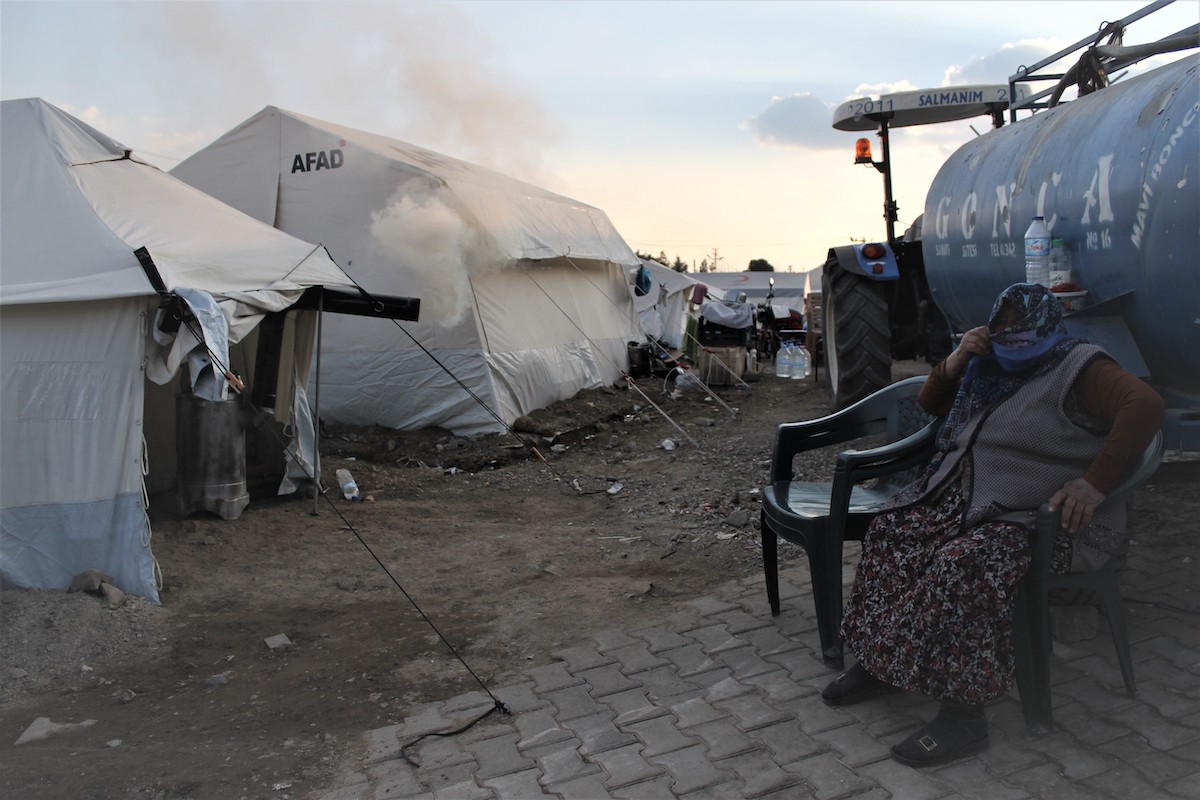Following the earthquake that hit Türkiye and Syria on 6 February KAMER, a partner civil society organization of UN Women Türkiye, is among the many civil society organizations that are working tirelessly to support survivors. KAMER has been identifying and helping meet the needs of women, girls and their families from the beginning. While trying to attend to their immediate needs in Diyarbakır, KAMER has also been providing psychological support to women and girls who have lost their homes and loved ones and are struggling with the potent mental after-effects of the disaster.
Civil society steps in to heal women's post-earthquake trauma in Türkiye

On 6 February 2023, twin earthquakes struck 11 provinces in Türkiye, killing more than 43,000 people and injuring many others. Civil society organizations, volunteers and public institutions, particularly those already in the region, deployed immediately to the cities to support survivors of the disaster, in which hundreds of thousands of people lost their homes and loved ones.
The Women's Center Foundation (KAMER), a women's organization founded in 2005 in Diyarbakır-one of the provinces hit by the earthquakes-has been working tirelessly over the last couple of weeks. KAMER has managed to quickly reach thousands of people in need in earthquake zones through its extensive network and 21 branches in southeast Türkiye.
Nebahat Akkoç, Chairperson of KAMER, says they are distributing aid packages daily, which contain sanitary pads, underwear, diapers and other essential items for women and girls. "Due to social norms, women in the region are embarrassed to ask for hygiene products, such as pads and underwear. Many women and girls are calling us to ask for such needs because we are a women's organization, so they know they can talk about their needs more freely. We also collaborate with public institutions and inform them about the needs and requests women are approaching us with. As a women's organization, we are in the field, and we advocate for the rights of all women and girls," says Akkoç.
Through UN Women's support, the foundation has been implementing the "We Are Here, Too" project for the past 14 months. Akkoç says they have now redirected this funding to support to women in grief and despair and struggling with trauma caused by the earthquake.
"There is a very urgent need for psychological support in the region," explains Akkoç. "Women and girls have lost their loved ones and homes. Suddenly, their lives have dramatically changed. Our support will hopefully help women to recover from their traumas. But much more is needed."
Through its multilingual and online psychological consultancy network, the foundation is providing psychological support to women survivors of the earthquake who were already suffering multi-dimensional poverty as a result of being deprived of educational rights, having low levels of income, lacking access to equal opportunities, and facing communication problems due to language barriers.
"Natural disasters can negatively affect an individual's physical, social, emotional and spiritual well-being. Psychological support is very important for earthquake survivors who struggle to cope with their trauma. But the healing process is long-term," says Sevil Bremer, a psychologist and psychotherapist who, alongside a team of 10 psychologists, has been supporting women from day one as part of KAMER's response. Bremer, who also supervises the psychologists, adds: "We started psychological support with psychologists who are also survivors of the earthquake. We identified their professional needs, useful psychological tools and methods."
"Women survivors of earthquakes are affected differently because of the daily problems they experience due to existing inequalities," Bremer says. "Therefore, thinking about the different needs of women and girls is vital for an effective response and recovery."
Originally published on UN Women's regional site for Europe and Central Asia
The "We are Here, Too" project is run under UN Women's "Strong Civic Space for Gender Equality" project funded by the European Union.
To support UN Women's efforts in the earthquake zone in Türkiye and Syria and to help women, girls and families in urgent need, please donate here.






